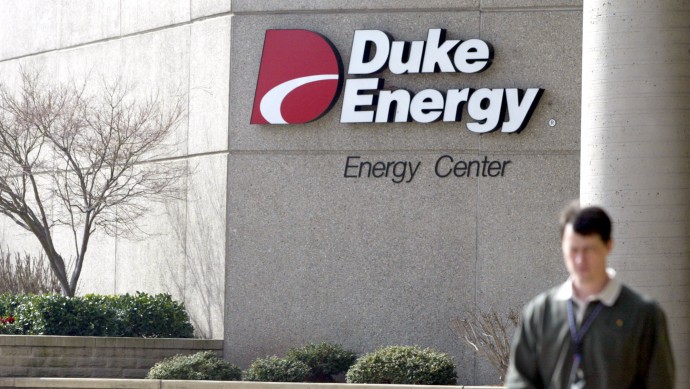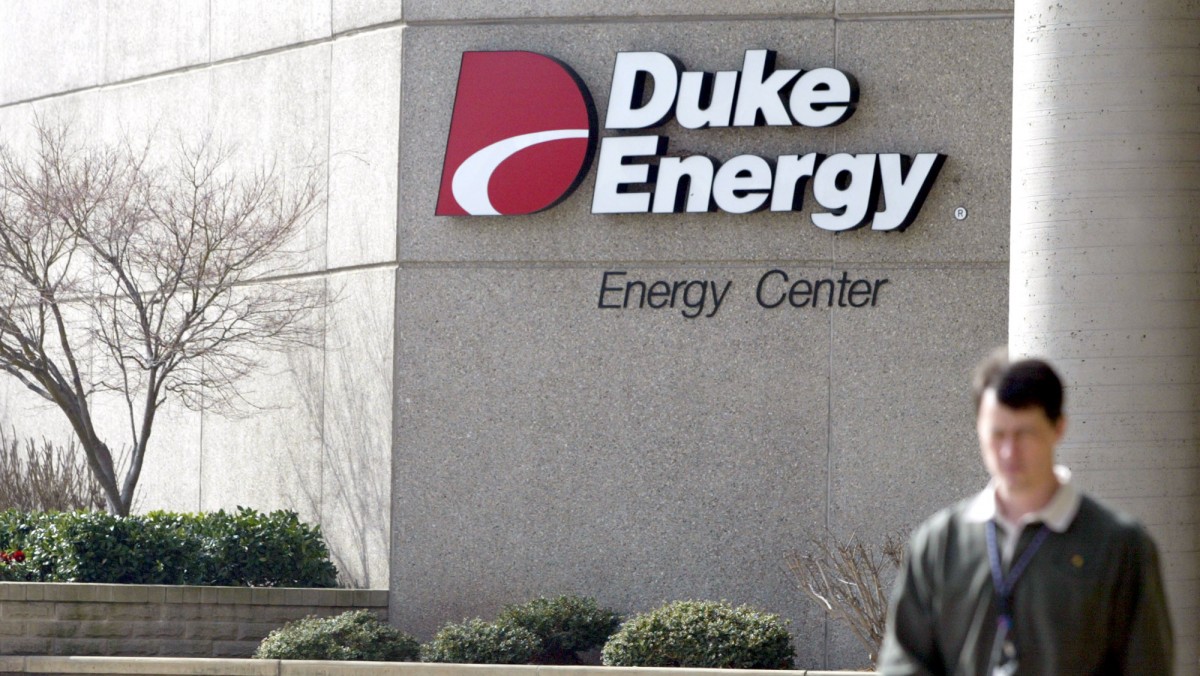
(Mint Press) – Since the beginning of the year, environmental activist organization Greenpeace has called out Charlotte, N.C.-based energy company Duke Energy for its fixation on coal power and slow response to renewable energy sources. But a recent campaign made by Greenpeace is now looking at the energy company’s role in this year’s presidential election as it relates to campaign contributions to both the Democratic and Republican National Conventions and its role with the controversial American Legislative Exchange Council (ALEC).
In a letter to Greenpeace activists, Greenpeace Coal Campaigner Robert Gardner expressed concern with companies like Duke Energy contributing millions of dollars in funds to both the Democratic and Republican campaigns because it creates a culture of corporate interests, Gardner wrote.
“Duke Energy is supporting both political parties while undermining our democracy. Raising public awareness about the actions of companies like Duke Energy is the most effective way to do that,” he said. “Asking the political parties not to take the money will only work when they realize the cost in public perception that comes along with it.”
Changing democracy?
Corporate influence in political elections has become a contentious issue with the rise of Political Action Committees (PACs) and Super PACs – corporate donors that campaign on behalf of a political party or candidate. Gardner said the generous contributions put Duke Energy in close quarters with lawmakers and ALEC, an organization comprised of conservative lawmakers, businesses and various private foundations.
Duke Energy, while providing funding to the Democratic convention, has also been a member of ALEC, according to Greenpeace, being responsible for contributing to a group that has authored the infamous stand-your-ground laws and is behind the current push of suppressive voter ID legislation. ALEC, with the help of Duke Energy, has also been behind the surge of proposed environmental bills such as nullifying targets for renewable energy and quelling efforts to make disclosure of hydraulic fracturing (fracking) chemicals commonplace.
“The DNC is shooting itself in the foot aligning itself with organizations that have such close ties to ALEC. ALEC is directly working to undermine the democratic process,” said Greenpeace spokesperson Monica Embrey.
Gardner said the push for secrecy by ALEC and its proceedings keep corporations like Duke Energy shielded from criticism and accountability, allowing them to support legislation that goes against the ideologies of the other political party it is backing.
“Companies like Duke Energy get away with this behavior in part because it’s hidden from the public,” Gardner wrote. “We’re working with a coalition of groups to change that. And there’s no better time to do it than now when the conventions dominate the headlines.”
A center of attention
Duke Energy is no stranger to public backlash and controversial practices. The company recently made headlines after its merger with Progress Energy for paying out upward of $44.7 million in a severance package to former Progress CEO Bill Johnson. Johnson reportedly led the merged companies for only 20 minutes before resigning and being given the hefty severance.
The move shook up the perception of Duke Energy on the stock market and the tone of the transaction was that is was less of a merger between two energy companies and more of a takeover of Progress Energy.
The payout also raised questions of the company’s stability and ethics, wrote former Progress board member, John Mullin III.
“In my opinion this is the most blatant example of corporate deceit that I have witnessed during a long career on Wall Street and as a director of [10] publicly traded companies …” Mullin wrote.
Duke Energy was also listed in a report published by the non-partisan policy group Public Campaign for paying more in lobbying expenses than total income taxes from 2008-2010. The report put Duke Energy in company with corporations such as Boeing, Wells Fargo, Verizon Communications and General Electric.
The report details that of 265 of the biggest companies analyzed, they paid taxes equal to 3 percent of their U.S. profits, less than half of the statutory 6.2 percent state corporate tax rate. Citizens for Tax Justice suggest that 68 of the 265 Fortune 500 companies did not pay a state corporate income tax for at least one year between 2008 and 2010.
« Our report shows these corporations raked in a combined $1.33 trillion in profits in the last three years, and far too many have managed to shelter half or more of their profits from state taxes, » said Matthew Gardner, the report’s co-author in a statement. « They’re so busy avoiding taxes, it’s no wonder they’re not creating any new jobs. »
But the biggest public outcry against Duke Energy occurred earlier in the year when the company passed a 7 percent rate increase for 1.8 million of its customers in North Carolina. Duke Energy said the increase was to help recover costs associated with power plant upgrades and pollution controls. Duke Energy had initially sought a 15 percent rate increase, but because customers protested against it, it settled at 7 percent but said it would push through another rate hike later this year.
Greenpeace was one of the organizations rallying against the rate increases, saying the company was easily able to cover its costs and pointed to the $17.47 million spent in lobbying between 2008 and 2010. More than 20 protesters were arrested during the totality of the protests, which honed in on Duke Energy’s heavy reliance on coal during a time when other parts of the country and other nations around the world have made conscious efforts to use renewable sources.
« We’re sending a message to Jim Rogers: stop raising our rates, » protester Monica Embrey said in February. “It’s a rate increase for dirty energy. It’s a rate increase for thousands of asthma attacks a year. »


